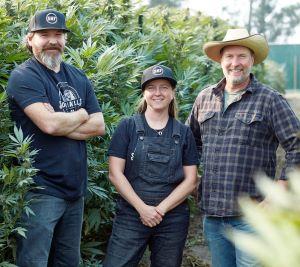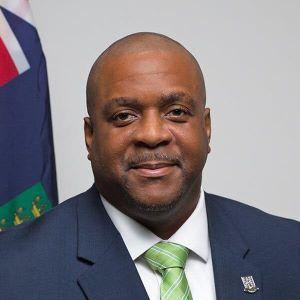A wave of armed robberies at Washington state retail marijuana outlets has now resulted in three deaths in the month of March, and in rising frustration that Congress has not acted to protect those shops by allowing the state-legal marijuana industry access to banking services, which prevents them from accepting payment for purchases electronically.
Ire over the issue reached the boiling point with the March 19 death of Jordan Brown, 29, a worker at World of Weed in Tacoma who was
shot and killed in a robbery at the store. That came three days after a March 16
robbery at the Factoria shop in Bellevue where the robber was shot and killed by police in a shoot-out, and two days after another
armed robbery at the Euphorium Marijuana Shop in the Seattle suburb of Covington, where a security guard shot and killed the robber. And while the details needed to assess the role of cash in the World of Weed shooting haven't been reported by the time of this writing, in other incidents workers have cited robbers' demands for access to secured cash.
"We pride ourselves on a great safety record and operating procedures, we've always gone above and beyond, so this was a total shock to us," said World of Weed owner Alden Linn at a Tuesday roundtable organized by the state Liquor and Cannabis Board (LCB) to discuss the crisis. "We have two security officers, but we were overrun by four individuals, one of whom murdered Jordan Brown. He was a stellar employee, and this was a total shock for us. We had a false sense of security relying on our protocols. It's really been a blow to the community and the employees."
"There is a massive public safety crisis roaring through the state that has left tragic deaths in its wake, said LCB Chair David Postman. "Business owners and employees are fearful they may be next when they're forced to do business in cash. We have had 70 robberies in 83 days this year. We're approaching one a day."
While the LCB and the industry are working on steps they can take at the store, local, and state level, roundtable participants were unified in calling on Congress to pass legislation that would allow pot businesses to escape the cash-only bullseye painted on their front doors, namely the Secure and Fair Enforcement (SAFE) Banking Act (HR 1996).
The House has passed such legislation six times only to see it bottled up in the Senate, most recently blocked by Senate Majority Leader Chuck Schumer (D-NY), who wants to prioritize his own, yet to be actually filed, comprehensive marijuana legalization bill instead. Schumer has found allies in the drug reform movement, most notably the Drug Policy Alliance (DPA), which argues that passing banking reform before passing legalization would come "at the expense of equity and justice for Black, Latinx and Indigenous communities that have borne the brunt of prohibition" and would "prioritize marijuana profits over people."
That argument was not getting much support in Washington state this week.
"I've been trying to build momentum around comprehensive reform, but there's a narrative that incremental reform and comprehensive reform are mutually exclusive, and that's frustrating, Michael Correia, director of government relations for the National Cannabis Industry Association, told the roundtable. "From a strategic standpoint, you want to have Congress focus on incremental issues like the SAFE Banking Act and tax relief, then spend the next few years dealing with the intricacies of comprehensive reform and cannabis legalization."
"Anyone who deals with this knows reform is incremental, but DPA, Cory Booker, and Schumer feel like SAFE is only about fat cats getting rich, and that comprehensive reform is the only path," Correia continued. "The SAFE Banking Act has overwhelming support -- it's got 100 GOP cosponsors in the House and 42 cosponsors including nine Republicans in the Senate. The problem is not cannabis prohibition but our cannabis friends. This is not about fat cats; this about helping small businesses, minority businesses."
"We have to demand that Congress act on the SAFE Banking Act and work here as if we assume they're not going to do that," said LCB Chair Postman. "The governor today has asked staff to work on what we can do in the absence of SAFE."
"Cannabis retailers are unable to bank and have to rely on cash, and we all recognize that this is a major contributing factor in the violence we are seeing," said state Treasurer Mike Pelliccioti, who added that he had met with fellow state treasurers to lobby them to get behind the issue. "Three out of four states have some form of legalized cannabis, but even treasurers in states that don't are engaged. It is our role to go to Congress and say enough dithering on this issue. Time and again the House has passed this, and it's time for the Senate to act."
Pellicciotti said he was aware of Senate Majority Leader Schumer's position, "but we are at the point where Congress needs to pass this."
He held out hope that the SAFE Banking Act could still pass this year, perhaps after Schumer introduces his broader legalization bill. "The most appropriate path for this to move forward is to tack it onto the America Competes Act, and then, after Schumer introduces his bill, we can move forward with the America Competes Act and make sure SAFE is included in the Senate," he said. "But it's pedal to the metal right now; there's a very narrow window."
State Sen. Karen Keiser (D-Kent) was less sanguine about the SAFE Banking Act advancing this year and more focused on the local public safety aspects of the issue.
"I have to be skeptical that Congress will pass it this year," she said. "But we have to take action, we cannot dither, we cannot wait for Congress or collaboration in the industry because people are being killed."
Keiser is asking the LCB to take immediate administrative actions on an emergency basis to help ameliorate the problem. One tool she suggested was requiring two-door entry, where potential customers have to go through a first door and have identification verified before a second door unlocks and grants them entry into the store. Another was standardized safety training for workers.
Keiser has also authored at least two bills aimed at the issue, one two years ago that would have required law enforcement to report all robberies to the LCB, and one this year that would have added a year to prison sentences for pot shop robbers. Neither passed.
"The sheriffs and police didn't want to deal with the reporting bill, and the stores didn't want to hear about it because it implied it wasn't a safe industry and it was dangerous. Now, we know it's dangerous," she said.
Not everyone wants to lengthen prison terms. A representative of the Oregon Attorney General's office noted that armed robbers can already potentially face life prison terms, and noted that WA Gov. didn't support the bill. [Ed: We are not for lengthening sentences either.]
Nevertheless, what seems increasingly cleasr is that banking for marijuana businesses is not solely about profits. And regulators, elected officials and others at both the state and federal levels now are all pushing for the SAFE Banking Act.
back to top
A campaign to promote the regenerative organic cultivation of marijuana is now underway in California and Oregon. Calling itself Weed Like Change, the campaign is bringing together a coalition of more than 50 regenerative organic cannabis farmers and brands, dispensaries, allied businesses, and advocacy groups to target and educate pot consumers about the benefits of such cultivation practices and the need to support small-scale legacy farmers in the face of cannabis corporatization.

Sonoma Hills Farm, an organic, regenerative hemp operation in Northern California. (sunandearth.org)
According to the Natural Resources Defense Council,
regenerative agriculture is a set of holistic practices that aims to maintain and restore ecosystem health by working in harmony with nature, as opposed to exploiting it. When it comes to organic marijuana cultivation, that means not only no artificial inputs -- no pesticides or chemical fertilizers -- but also such techniques as mulching and composting, use of cover crops, inter-cropping, and adding to soil fertility; in general, working
with the local environment, not struggling against it.
The campaign is being led by the two-year-old nonprofit Sun+Earth Certified, which, according to its web site, "certifies that cannabis brands are holistically, responsibly, and regeneratively grown for the well-being of all people, farmers, and the planet" and "sets the standard above and beyond organic." Sun+Earth currently has 42 certified growers, primarily in California and Oregon, but also with outposts in Colorado, Michigan, North Carolina, and Washington.
"The multi-billion dollar cannabis industry has an important obligation to shift away from high levels of energy consumption and chemical-intensive farming practices, and Sun+Earth has the blueprint for how to do that," said Sun+Earth Executive Director Andrew Black.
Given the ever-greater impacts of man-made climate change, there is a dire need for the marijuana industry to really go green. An academic study published in April by researchers at Colorado State University found that moving from indoor grow operations to outdoor farms would reduce greenhouse gas emissions in the state's marijuana sector by a whopping 96 percent, shaving more than one percent off the state's total emissions.

A Sun+Earth certified grow in California. (sunandearth.org)
That funding builds on a
2012 academic report from UC Berkeley found that all cannabis grown in the US uses at least one percent of all electricity consumed in the country at a cost of $6 billion per year. A
report from New Frontier Data that found that indoor cultivation in the US produces 2.6 million tons of carbon dioxide or one pound of carbon emissions for each gram of harvested flower. The same report found that growing indoors uses 18 times more electricity and produces nearly 25 times more carbon than outdoor farms.
"We're thrilled to be participating in the Weed Like Change campaign," said Casey Branham, co-founder of Phoenix Rising Farm, situated on the banks of the Little Applegate River in southern Oregon. "As the real stewards of this cottage industry in Oregon, small family farms like ours provide opportunity in local communities and produce craft cannabis that is recognized nationwide," he continued. "Regenerative organic cannabis is not only better for the consumer by being more cannabinoid and terpenoid-rich, but it's also better for the environment, as it emphasizes soil health, water management, and the enhancement of the overall ecosystem in its production, as well as being free of chemical pesticides and fertilizers."
The Weed Like Change campaign is also being supported by Dr. Bronner's soaps as part of its commitment to regenerative organic agriculture and drug policy reform. The natural soap maker, which has put millions into drug reform efforts over the years, has produced a special Weed Like Change! label on a limited edition run of its 4oz. Castile Liquid Soap bottles, which will be distributed at campaign education events throughout California and Oregon.

Dr. Bronner's Cosmic Engagement Officer David Bronner. (drbronner.com)
"Small-scale legacy cannabis farmers fear they are at risk of extinction. To keep these farmers in business as well as for the broader health of people and planet it is imperative for cannabis consumers to choose sun-grown regenerative organic cannabis," said David Bronner, Cosmic Engagement Officer of Dr. Bronner's. "We need to transition the global food system and the cannabis industry to regenerative organic agriculture and away from the dominant carbon intensive industrial model that threatens the livelihoods of small-scale farmers."
Ethically responsible pot smokers have choices to make about the kinds of growing methods they support with their dollars. Weed Like Change aims to help them make the right choice -- for the small farmers who were the traditional backbone of marijuana cultivation, for the communities in which both farmers and consumers live, and for the sake of the planet and our place on it.
back to top
On April 3, the Taliban announced a ban on drug cultivation in Afghanistan, for years the world's dominant opium producer, accounting for more than 80 percent of the global supply of the substance, from which heroin is derived, throughout this century. But the ban announcement raised as many questions as it answered and has been met with a degree of skepticism, not only around the motives of the Taliban but also because opium plays such a key role in an Afghan economy that is now in especially dire straits.

The opium poppy is an economic mainstay in Afghanistan. Can the Taliban really suppress it? (UNODC)
"As per the decree of the supreme leader of the Islamic Emirate of Afghanistan, all Afghans are informed that from now on, cultivation of poppy has been strictly prohibited across the country," said an order from the Taliban's supreme leader Haibatullah Akhundzada. "If anyone violates the decree, the crop will be destroyed immediately and the violator will be treated according to the Sharia law," the order said.
The order also banned the cultivation, manufacture, transportation, or use of other drugs. (Afghanistan is also one of the world's leading cannabis producers and is seeing rapidly increasing methamphetamine production.)
The Taliban presided over the only other opium ban in modern Afghan history back in 2000, but that effort faltered amidst a popular backlash against repressing a crop that provided incomes for hundreds of thousands of families, and eventually withered away before the Taliban were overthrown by the invading Americans late in 2001.
During two decades of foreign occupation, repressing the opium trade largely played second fiddle to the war on terror, and the Afghan opium economy prospered. By the end of 2021, the UN Office on Drugs and Crime (UNODC) estimated that the opium trade was worth between $1.8 and $2.7 billion, constituting as much as 11 percent of the country's Gross National Product (GNP). UNODC also noted that the departure of Western development assistance after the Taliban takeover in August, which accounted for 22 percent of GNP, will only make drug markets a larger share of the economy.
So, is the ban for real? And if the Taliban are serious, can they actually do it, given the crucial role the crop plays in the devasted national economy? The Chronicle consulted with a couple of experts on the topic, and opinions were divided.
Sher Jan Ahmadzai is director of the Center for Afghanistan Studies at the University of Nebraska-Omaha. He is skeptical.
"If you look at the Taliban's historical approach to opium, they only banned it when prices went down to increase demand," said Ahmadzai. "A second goal has been to respond to international pressure that opium should be banned. But looking strategically at opium, where their funding comes from, it doesn't seem to me that they will really pursue this."
"There are a couple of reasons for that," Ahmadzai continued. "One, they have been dependent on the income from opium. Although opium production is haram, they didn't ban it for religious reasons. Instead, they taxed it, and many of their leaders have been involved in drug trafficking and depend on this. To me, it seems very difficult to accept the ban as a fact.
"Second, most of rural Afghanistan, especially the southwest, has traditionally been dependent on opium production, and it will really hurt them economically, which will create political problems among the Taliban. Their support base is opium-growing farmers, and a ban will attract their anger," he argued.
Vanda Felbab-Brown is a senior fellow in the Center for Security, Strategy, and Technology in the Foreign Policy program at the Brookings Institute. She thinks the ban is for real but will come with a high price.
"For several years, Taliban interlocutors were saying they were moving toward the ban," said Felbab-Brown. "It didn't work out for them in 2000, and later they were deeply engaged in poppy cultivation, but the leadership now is very conservative, very inward-looking, very doctrinaire, and is trying to restore 1990 policies. The more internationalist factions within the Taliban are much weaker and have not been successful in implementing policies.
"There is good reason to believe they will try to implement the ban, but that will have significant impacts on the implementers, including fighters, who have not gotten paid," she continued. "This will impact relations among the various factions and the ability of commanders to pay their fighters, which will be negatively affected by the ban.
"The question is how long will they maintain it, how long are they willing to squeeze the people and deal with compounding rifts within the Taliban. They don't want to alienate various factions, but in this case, we see a very conservative policy that will compound those rifts," she predicted.
Ahmadzai was not convinced that the ban reflected factional differences between conservatives and internationalists within the Taliban.
"I don't see any big differences in their policies," he said. "I haven't seen any breakups, so it's hard to say it's a power struggle between the factions. No one has spoken out against it; even those who were stationed in Doha have not spoken out against anything the conservatives have done. If there is a power struggle, it is not around differences over banning."
For Ahmadzai, the ban is little less than a publicity stunt, especially given harsh economic conditions and Afghanistan's desperate need to mollify the international community in order to get sanctions removed and assistance flowing again.
"The urban economy was already seeing its own share of destruction in the last eight months, and the rural economy is more or less based on opium," he said, "so more than anything this looks like another cosmetic step to let the international community know they are doing something. They want to make Iran or Russia happy. Russia is a huge market for Afghan drugs, and the Russians want them to come down hard on opium production."
Felbab-Brown disagreed.
"There is also a possible international dimension to this; the Taliban may be trying to curry favor with Iran or Russia, but that is not the principal reason," said Felbab-Brown.
Whatever the reason for the ban announcement, if it actually happens, it is going to make tough times in Afghanistan -- the UN last month reported that the country is facing a food insecurity and malnutrition crisis of "unparalleled proportions" -- even tougher.
"The Taliban are not promising help or advising people what to do; their attitude is just cope with it. But the country is already in a drastic humanitarian situation, and this will not just hurt farmers, there will be significant knock-on effects," said Felbab-Brown. "The economy has dried up since the Taliban took power, and heroin has been one of the sources of liquidity. As problematic as the bans and eradication were in 2000, eventually they were not enforced and eradication was not funded, and now the economy is so much worse. The economic impact of the Western withdrawal is already awful; this will make it just tragic."
back to top
Medical marijuana will not be on the ballot in Idaho this year, Kentucky's governor is looking into going around a recalcitrant legislature on medical marijuana, and more.
NationalSAMSHA Cuts No Slack for Medical Marijuana, Accidental Exposures in Updated Federal Drug Testing Rules. In a pair of notices published in the Federal Register earlier this month, the Substance Abuse and Mental Health Services Administration (SAMSHA) published a pair of notices about proposed changes to drug testing policies. One new notice clarifies that having a doctor's recommendation for medical marijuana is not a valid excuse for a positive drug test. The second new notice states that passive exposure to secondhand marijuana smoke or accidental ingestion of foods containing marijuana are not a legitimate medical explanation for a positive drug test. These are proposed rules, and there is a 60-day public comment period on the proposals is open until June 6.
Idaho
Idaho Medical Marijuana Initiative Campaign Comes Up Short. Kind Idaho, the group behind an effort to get a medical marijuana initiative on the November ballot, says it is not going to make it. "We aren't going to meet numbers," the campaign's treasurer said. The campaign needs 70,000 valid voter signatures to make the ballot but has only come up with a tenth of them, and the deadline is one week from today. "We ran into some issues along the way with basically starting up a grassroots organization without any sort of financial backing or assistance," he said.
KentuckyKentucky Governor Announces Plan to Allow Medical Marijuana. In the wake of the legislature's failure to pass a marijuana bill (again), Gov. Andy Beshear (D) announced last Thursday a process that could lead to executive actions to allow medical marijuana in the state. "Most of these steps are about hearing from you, the public, so that your voice is heard by the executive branch -- even if it's ignored by the legislative branch," Beshear said. Without naming names, Beshear went after Republican senators who blocked the bill, saying that "it's time that a couple of individuals that are out of touch with the vast majority of Kentuckians on this issue stop obstructing it and we're able to move forward."
North Carolina
North Carolina Poll Has Supermajority for Medical Marijuana, Majority for Legalization. A poll from WRAL News shows that 72 percent of state voters want medical marijuana legalized and 57 percent want full adult legalization. Those supermajorities for medical marijuana include 73 percent of Democrats and 64 percent of Republicans, while 63 percent of Democrats and only 45 percent of Republicans want full adult legalization. The poll comes as a medical marijuana bill, the North Carolina Compassionate Care Act (Senate Bill 711) is before the Senate, where it went through several committees last yar and is now back before the Senate Committee on Rules and Operations.
back to top
A Big Easy cop does the Big Sleezy and more prison guards go down. Let's get to it:
In Stillwater, Minnesota,
a state prison guard was arrested April 17 for smuggling methamphetamine into the prison. Guard Faith Rose Gratz, 24, went down after a cell phone seized from an inmate incriminated her in a smuggling plot. Prison officials searched her vehicle when she arrived at work and found 233 grams of methamphetamine in it. She is charged with one count of methamphetamine possession with intent to sell and one count of possession of 50 grams or more.
In New Orleans, a New Orleans police officer was arrested last Wednesday on accusations he was dealing crack cocaine. Officer Reginald Koeller III, 38, is also on emergency suspensions pending the outcome of an "ongoing federal investigation." He was arrested by FBI agents and New Orleans police after they executed a search warrant and came up with more than an ounce of crack cocaine. He is charged with illegally carrying a weapon while possessing a controlled substance and possession with intent to distribute crack cocaine. He could get up to 20 years under state law.
In Punta Gorda, Florida, a guard at the Charlotte Correctional Institution pleaded guilty last Thursday to smuggling methamphetamine and MDMA into the prison. Troy Alexander Cole, 28, agreed on at least three separate occasions to smuggle drugs into the prison in return for cash payments. He copped to attempted distribution of methamphetamine and MDMA and is now looking at up to 20 years in federal prison.
back to top
A Connecticut bill to eliminate commercial marijuana gifting passes the House, a new poll shows strong support for medical marijuana in North Carolina as the legislature considers a bill, and more.

Nagaenthran K. Dharmalingam, executed Wednesday in Singapore for 1.5 ounces of heroin. (Creative Commons)
Connecticut Bill to Eliminate Commercial Marijuana Gifting, Allow Physicians' Assistants to Write Medical Marijuana Recommendations Passes House. The House voted Tuesday to approve House Bill 5329, which would originally have barred the gifting of marijuana by anyone, but has been amended to allow social gifting and has seen the criminal penalties for commercial gifting removed. Advocates had argued that the ban on social gifting would hurt patients who may rely on it to get their medicine. The bill also will allow physicians' assistants to recommend medical marijuana to patients. It now heads to the Senate.
Medical Marijuana
North Carolina Poll Has Supermajority for Medical Marijuana, Majority for Legalization. A poll from WRAL News shows that 72 percent of state voters want medical marijuana legalized and 57 percent want full adult legalization. Those supermajorities for medical marijuana include 73 percent of Democrats and 64 percent of Republicans, while 63 percent of Democrats and only 45 percent of Republicans want full adult legalization. The poll comes as a medical marijuana bill, the North Carolina Compassionate Care Act (Senate Bill 711) is before the Senate, where it went through several committees last yar and is now back before the Senate Committee on Rules and Operations.
Harm Reduction
New Yorkers Support Safe Injection Sites, Poll Finds. A new poll from Data for Progress found majority support for safe injection sites among likely voters in the state. A whopping 80 percent of Democrats and even 43 percent of Republicans favored the harm reduction intervention, creating an overall level of support at 64 percent. This was an online poll, which generally skews younger than traditional phone surveys, but Data for Progress did not provide an age breakdown of the numbers.
International
Singapore Executes Malaysian Man with Mental Disabilities on Drug Charges. The city-state has gone ahead with the execution of Nagaenthran K. Dharmalingam after a long international campaign for clemency failed. Dharmalingam, 34, got caught bringing 1.5 ounces of heroin into Singapore in 2009 and sentenced to death in 2010. Singapore halted executions during the coronavirus pandemic but started them up again with the hanging of another drug offender on March 30. Singapore has some of the toughest drug laws in the world, with a mandatory death sentence for trafficking more than a half ounce of heroin. Dharmalingam's lawyers had tried numerous appeals, noting that he had an IQ of 69 and that his mental condition had deteriorated in prison, and garnered extensive international support for clemency, to no avail. "Hanging an intellectually disabled, mentally unwell man because he was coerced into carrying less than three tablespoons of diamorphine is unjustifiable and a flagrant violation of international laws that Singapore has chosen to sign up to," said Maya Foa, director of the anti-death penalty group Reprieve.
back to top
No, Virginia, new criminal marijuana offenses are not happening; a bipartisan pair of senators file a bill aimed at helping communities respond to the overdose crisis, and more.

MDMA. A Colorado bill foresees federal rescheduling and seeks to align state statutes to allow prescriptions. (CC)
California Bill to Allow Pot Growers to Sell at Farmers' Markets Advances. A bill that would allow marijuana growers to sell their weed directly to customers at farmers' markets, Assembly Bill 2691, has won a first committee vote, passing out of the Assembly Committee on Business and Professions. The bill comes as growers are seeing historically low prices and facing a financial crunch. The price of outdoor grown marijuana has fallen to $488 a pound, a drop of more than 50 percent from last year. It now goes to the Assembly Committee on Appropriations.
Georgia Democrats Will Vote on Non-Binding Marijuana Question in May Primary. The state Democratic Party leadership has placed nine non-binding ballot questions, including one on marijuana legalization, on the ballot for Democratic Party voters next month. The marijuana question asks: "Should marijuana be legalized, taxed and regulated in the same manner as alcohol for adults 21 years of age or older, with proceeds going towards education, infrastructure and health care programs?" The aim of the questions is to demonstrate to elected officials that there is support for reforms.
Virginia Senate Kills Governor's Amendments to Recriminalize Marijuana Possession. Gov. Glenn Youngkin's (R) effort to create two new criminal offenses for possession of more than two ounces and more than six ounces of marijuana has gone down in flames. Youngkin had proposed the regressive step as an amendment to Senate Bill 591, but the Senate voted Tuesday to re-refer the bill to committee, effectively killing it since the legislative session has already ended for the year. The state legalized marijuana last year.
Psychedelics
Colorado MDMA Legalization Bill Advances. A bill that foresees eventually federal legalization of MDMA for medicinal purposes and seeks to align state statutes to allow state-level legalization for prescriptions once that happens, House Bill 1344, has successful passed the House and won its first Senate committee vote Wednesday. After being cleared by the Senate Health and Human Services Committee, the bill now heads for a Senate floor vote.
Drug Policy
Bipartisan Pair of Senators File Bill to Help Local Communities Fight Drug Overdoses. Sens. Sheldon Whitehouse (D-RI), Chairman of the Senate Caucus on International Narcotics Control, and Senator John Cornyn (R-TX), a caucus member, introduced the Overdose Review Team Act Wednesday to help local communities save lives by improving their response to the overdose epidemic. The legislation would create a grant program at the Department of Health and Human Services (HHS) to support local governments in establishing panels of health officials, social service organizations, law enforcement, and others to review drug overdoses. The panels would then develop best practices and policy recommendations to prevent future overdoses -- a model that has been adopted in a dozen states, including Rhode Island.
back to top
The White House announces more money for drug law enforcement, GOP senators file a bill to reduce but not eliminate the crack-powder cocaine sentencing disparity, and more.

British Virgin Islands Premier Andrew Fahie -- busted on drug charges in Florida (bvi.gov.vg)
New Hampshire Senate Again Rejects Marijuana Legalization Bills. The Senate on Thursday rejected two different marijuana legalization bills. House Bill 1598 would have created a state-run monopoly for retail marijuana sales, while House Bill 629 would have legalized personal possession and home cultivation of the plant. In recent years, the House has repeatedly passed marijuana legalization bills, only to see them die in the Senate. On reason is paternalistic politicians like Sen. Bob Guida (R-Warren), who said he was "proud" of defeating legalization. "It may be what people want, but it's not what we as a Senate should enable them to do because it will cause harm," he said.
Law Enforcement
White House Announces $275 Million for Law Enforcement in HIDTAs. The White House's Office of National Drug Control Policy (ONDCP -- the drug czar's office) announced Thursday that it has allocated $275 million for law enforcement in designate High Intensity Drug Trafficking Areas (HIDTAs) to tackle black market opioid trafficking. ONDCP said the funds would go to 33 regional HIDTAs to "reduce violence associated with drug trafficking, improve interdiction efforts through enhanced data sharing and targeting, and dismantle illicit finance operations." Some of the money will also support public health and safety partnerships, like the Overdose Response Strategy, which works with the Centers for Disease Control and Prevention (CDC) to reduce overdose. But the bulks of the money is going to prohibitionist law enforcement.
Sentencing
GOP Senators File Bill to Reduce but Not Eliminate Crack/Powder Cocaine Sentencing Disparity, Stiffen Some Penalties. US Sens. Chuck Grassley (R-IA), Mike Lee (R-UT), Lindsey Graham (R-SC), and Roger Wicker (R-MS) to introduce the SMART Cocaine Sentencing Act, which would reduce the sentencing disparity between crack and powder cocaine offenders tried in federal courts. The bill would reduce the current crack-to-powder cocaine sentencing disparity from 18:1 to 2.5:1. It would reduce the volume required to trigger five-year mandatory minimum sentences for powder cocaine from 500 grams to 400 grams, and from 5 kilograms to 4 kilograms for 10-year mandatory minimum sentences. For crack cocaine, the volume triggering a five-year mandatory sentence would be increased from 28 grams to 160 grams; the volume for the 10-year mandatory sentence would be lifted from 280 grams to 1,600 grams.
International
British Virgin Islands Leader Busted in Florida Drug Sting Operation. The elected head of government of the British Virgin Island, Premier Andrew Fahie, was arrested in a drug sting operation in Florida Thursday. Fahie went down after an undercover informant posing as a member of the Sinaloa Cartel sought his help in moving cocaine through the territory and on to the United States and Fahie agreed to help in return for $500,000 paid up front and accepted $20,000 in cash as good faith money. The Caribbean island nation's port director and her son were also charged. Fahie and the other two all face charges of conspiracy to import at least five kilograms of a cocaine mixture and conspiracy to launder money.
Mexico Sends 200 More Soldiers to Tijuana to Fight Cartel Violence. Mexico has deployed an additional 200 National Guard troops to join the 3,500 already deployed in the border city of Tijuana, which has been ravaged by prohibition-related violence in recent weeks. "The conflict over control of production, distribution and sales of drugs led by organized delinquents within the state of Baja California has generated a large number of homicides as a result of these activities,"said General Francisco Javier Hernández Almanza, the head of the Mexico's National Guard in Baja California. The soldiers will man vehicle checkpoints across the city. But the entry of Mexican soldiers into areas of cartel violence has often led to more -- not less -- violence.
Peru Announces Plans to Buy Up Entire Illicit Coca Crop. The government has announced a plan to buy up the nation's entire supply of illegal coca leaf as part of its battle against drug trafficking. The Andean nation is one of the world's three major cocaine producers, along with Bolivia and Colombia. The country has a legal coca market and produced an estimated 160,000 tons of coca leaf last year, but 95 percent of that was grown illegally and was destined for illegal markets, where it was converted into about 400 tons of cocaine. The country's coca monopoly, ENACO, has 95,000 registered licit coca growers, but there are an estimated 400,000 illicit coca growers that the government wants to bring into the fold. "It is imperative, for at least a year, to buy coca leaf from existing registered producers and from those that will make up the newly created register," Cabinet Chief Anibal Torres said on Wednesday when presenting the initiative. The plan would also end the military occupation of the VRAEM (Valleys of the Apurimac, Ene, and Mantaro Rivers), the country's main coca production area, which has had a military presence since 2006.
back to top
The Caribbean nation of Trinidad and Tobago is moving toward legal, regulated marijuana markets; an Oklahoma bill for an open-ended moratorium on new medical marijuana business licenses nears passage, and more.

Ecuadorian President Guillermo Lasso. The center-right leader has imposed a state of emergency over drug violence. (unctad)
Last Chance to Kill Oklahoma Bill to Put Moratorium on New Medical Marijuana Businesses. The National Organization for the Reform of Marijuana Laws (NORML) is warning that time is running out to oppose a pending bill, House Bill 3208, that would impose a moratorium on processing and issuing new medical marijuana business licenses. The measure has already passed in both the House and Senate, but was amended in the Senate, and is now back before the House for a final vote. Voters approved medical marijuana in 2018, and the state then became the fastest in the country to implement new medical marijuana laws, but lawmakers have been concerned about the explosion of medical marijuana cultivation and businesses since then. The bill would allow the Oklahoma Medical Marijuana Authority to extend the moratorium indefinitely, for as long as it "deems necessary."
International
Ecuador President Declares State of Emergency over Prohibition-Related Violence in Three Provinces. President Guillermo Lasso announced last Friday that he was decreeing a state of emergency for the next two months in three provinces that have been wracked by violence related to the black market drug trade. "I have declared a state of exception in the (coastal) provinces of Guayas, Manabi, and Esmeraldas, effective from midnight tonight," he said then. Lasso also ordered 4,000 police and 5,000 soldiers deployed to the three provinces and declared an overnight curfew for some areas, such as the town of Duran, near the port of Guayaquil. Increased drug trafficking in the country has left 1,255 dead since the start of the year and has also been linked to a series of prison massacres among rival gangs that have left more than 350 dead. The country is not a significant cocaine producer but serves as a transit hub for its illicit transshipment.
Trinidad and Tobago House Approves Bill to Regulate Legal Marijuana Commerce. The House last Friday gave unanimous approval to a bill to regulate the legal marijuana industry, the Cannabis Control Bill of 2020. The bill will "provide for the regulatory control of the handling of cannabis for certain purposes, the establishment of the Trinidad and Tobago Cannabis Licensing Authority and connected matters." Minister of Local Government and Rural Affairs Faris Al-Rawi said that while the earlier relaxation of the country's marijuana laws helped greatly to unclog the country's criminal justice system, this bill would people the chance to make some "serious money." Trinidad and Tobago has a parliamentary system of government, which means this bill has the support of the government. It must still pass the Senate, though.
back to top
Signature-gathering for a marijuana legalization inititiave is underway in Oklahoma, the courts block a San Francisco effort to enact broad bans on alleged drug dealers in the Tenderloin, and more.

San Francisco. The courts are blocking the city's effort to ban alleged drug dealers from the Tenderloin. (Creative Commons)
Ohio Marijuana Legalization Initiative Campaign Files Preemptive Lawsuit Over Whether It Will Appear on November Ballot. Anticipating an effort by Republican lawmakers to keep their marijuana legalization initiative off the November ballot, the Coalition to Regulate Marijuana Like Alcohol filed a lawsuit last Friday to block the expected move. Secretary of State Frank LaRose (R) submitted petitions to the legislature on January 28, giving it until May 28 to approve the petitions calling for legalization, after which, the coalition could then do another round of signature-gathering to put the question directly before voters in November. But Republican legislative staffers have argued that because the petitions were not submitted to the legislature 10 days before the start of the session, as required by the state constitution. But the preemptive lawsuit argues there is state Supreme Court precedent for allowing a November vote.
Oklahoma Marijuana Legalization Initiative Campaign Begins Signature-Gathering. Marijuana legalization advocates have begun signature gathering for State Question 820, which would legalize adult use marijuana and levy a 15 percent excise tax on retail purchases to fund the Oklahoma Medical Marijuana Authority. Campaigners will need 95,911 valid voter signatures to qualify for the November ballot and have until August 1 to do so. Another pair of initiatives could also appear on the ballot. State Question 818 would create a State Cannabis Commission that would replace the OMMA and guarantee patients' medical cannabis access in the Oklahoma Constitution, while State Question 819 would legalize adult-use marijuana and guarantee medical and adult-use marijuana access in the Constitution. Because these two questions would change the state constitution, they face a higher signature-gathering threshold than State Question 820, which would only make statutory changes. The threshold for constitutional questions is 177,958 valid voter signatures.
Drug Policy
California Appeals Court Blocks San Francisco Bid to Ban Drug Dealers from Tenderloin, SOMA. In a case that began when the city sued 28 alleged drug dealers in the Tenderloin and South of Market (SOMA) neighborhoods and banned them from a 50-square-block area in those neighborhoods, which are rife with open drug dealing and drug use, a state appeals court has upheld a lower court decision last year blocking the bans from taking effect. In its ruling last Friday, the 1st District Court of Appeals held that while local governments may be entitled to narrowly target ban orders in some limited circumstances, but not such a broad one. The lower court decision held that the ban was so broad it would violate the constitutional right to travel, and that state law did not appear to authorize it.
The appeals court largely agreed: "We are mindful of, and sympathetic to, the challenges faced by the city in addressing the issues of illegal drug sales, drug use, and the drug-related health crisis and its effects on the people who live and work in the neighborhood," Justice Marla Miller wrote in Friday's 3-0 ruling. But, she continued, "although the city contends these defendants have no reason to ever even be in the 50-square-block Tenderloin neighborhood except to sell drugs there was evidence that many community resources and government agencies are located in the Tenderloin." The lower court judge was entitled to believe statements from the four people "that they were interested in taking advantage of the employment, treatment, housing, and health services available in the 50-square-block neighborhood," the appeals court added. The city said it was "disappointed" with the ruling, but had yet to decide whether to appeal.
Education
Pell Grants Will Be Available for Prisoners Again Beginning Next Year. Once upon a time, incarcerated Americans were able to try to advance themselves by using Pell Grants to pay for college tuition and textbook costs -- just like other students -- but when Congress passed the Violent Crime Control and Law Enforcement Act of 1994, it barred prisoners from accessing that financial aid. In 2020, though, Congress restored the eligibility for both state and federal prisoners. In the fall of 2021, the Department of Education begin developing rules for the expansion of Pell Grants to prisoners and has now announced that application forms for imprisoned students will be available on October 1 for the 2023 academic year.
International
British Virgin Islands Premier Asserts Immunity in Cocaine Case, Demands Immediate Release. British Virgin Islands (BVI) Premier Andrew Fahie, who was arrested last week in a US government sting in Miami, argued in court Monday that as the elected head of government, he is immune from prosecution and should be released immediately. No word yet on when a federal judge will decide that question, and in the meantime, Fahie remains in custody. Fahie and his ports director, Oleanvine Maynard, were busted at the Miami airport where they met what they thought were Mexican drug traffickers but were actually DEA agents seducing them into a scheme to import cocaine from South America through the BVI. Back home, Fahie already faced allegations of deep corruption, and his arrest may help propel a push to temporarily suspend the constitution and return to rule from London in an effort to clean up the government. Busting a head of state is a big deal and would have required approval at the highest levels of the Justice and State departments.
back to top











